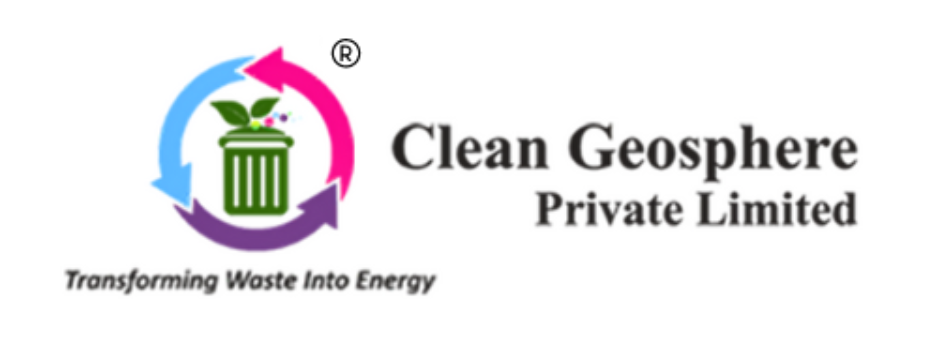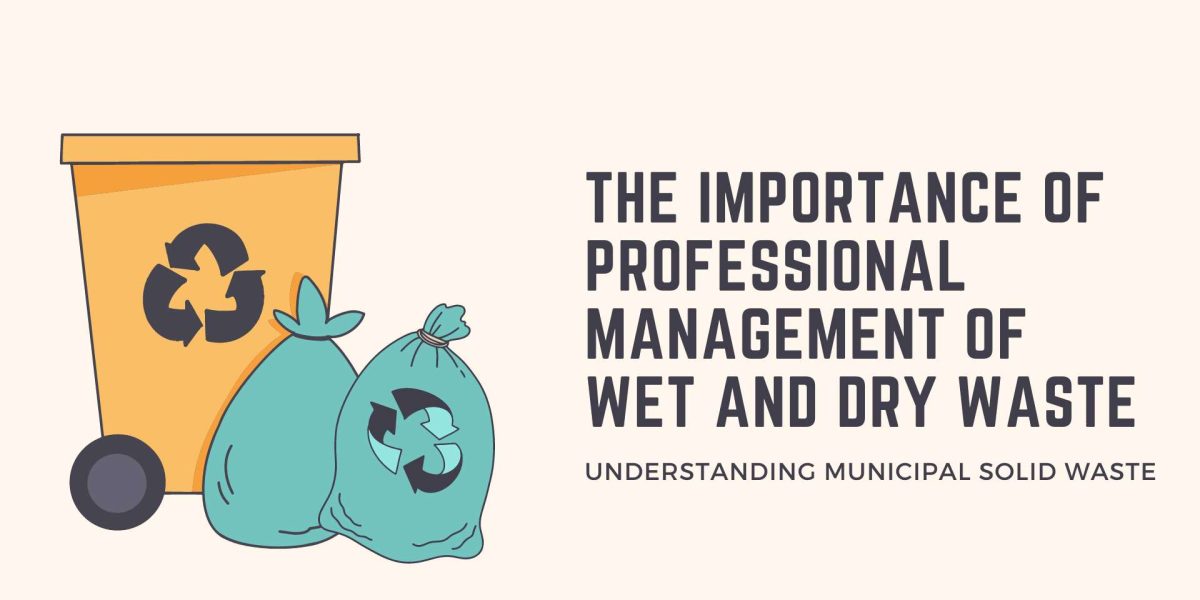Waste management is a critical aspect of maintaining a clean and sustainable environment. Among the various types of waste, wet and dry waste are the most common, collectively referred to as municipal solid waste (MSW). Understanding the nature of these wastes and why professional management is crucial can help us reduce the burden on landfills and promote a healthier ecosystem.

What is Wet and Dry Waste?
Wet Waste: Wet waste primarily consists of organic matter. This includes kitchen scraps, food leftovers, fruit and vegetable peels, tea bags, coffee grounds, and garden waste. Due to its organic nature, wet waste is biodegradable and can be composted to produce valuable compost or biogas.
Dry Waste: Dry waste encompasses materials that are not biodegradable. This includes plastics, paper, cardboard, glass, metals, and textiles. Unlike wet waste, dry waste can be recycled or repurposed, reducing the need for raw materials and conserving natural resources.
Why is it Called Municipal Solid Waste?
Municipal solid waste (MSW) is the term used to describe the mixed waste generated from residential, commercial, institutional, and industrial sources within a municipality. This waste is collected by local authorities and includes everyday items discarded by the public. The categorization into wet and dry waste helps in the systematic management and processing of MSW.

Preventing Landfill Overflow
One of the significant reasons for professional waste management is to prevent the overflow of landfills. Landfills are designed to hold waste that cannot be processed in other ways. However, when wet and dry waste are not managed correctly, they end up in landfills, leading to several problems:
Space Shortage: Landfills have a limited capacity. When waste is not segregated and managed, landfills fill up quickly, necessitating the creation of new sites, which can encroach on natural habitats and communities.
Pollution: Unmanaged waste in landfills can lead to soil and water pollution. Leachate, a liquid that forms when waste breaks down, can contaminate groundwater and nearby water bodies.
Greenhouse Gas Emissions: Organic waste in landfills decomposes anaerobically (without oxygen), producing methane, a potent greenhouse gas that contributes to climate change.
Promoting Recycling and Composting
Professional waste management ensures that wet and dry waste are segregated at the source, making recycling and composting more efficient:
Recycling: Dry waste such as plastics, paper, and metals can be collected and sent to recycling facilities. This reduces the demand for virgin materials, saving energy and resources.
Composting: Wet waste can be directed to composting facilities where it decomposes aerobically (with oxygen) to produce compost. This compost can be used as a natural fertilizer, enhancing soil health and reducing the need for chemical fertilizers.
Ensuring Compliance with Regulations
Municipalities have stringent regulations regarding waste management. Professional waste management services are well-versed in these regulations and ensure compliance, avoiding fines and legal issues for households and businesses.
Enhancing Public Health
Proper waste management reduces the risk of disease. Uncollected or improperly disposed of waste can attract pests such as rodents and insects, which are vectors for diseases. By ensuring regular and efficient waste collection and processing, professional services help maintain public health standards.
Educating the Public
Professionals in waste management also play a crucial role in educating the public about the importance of waste segregation and the benefits of proper disposal methods. Public awareness is key to achieving sustainable waste management practices.

At Clean Geosphere, we are dedicated to providing comprehensive waste management solutions that prioritize sustainability and efficiency. Here’s why you should trust us with your waste management needs:
6+ Years in Business: With over six years of experience in the industry, we have honed our expertise in handling all types of waste, ensuring environmentally friendly processing methods.
Authorized by Municipal Corporation: We are officially authorized by the municipal corporation, guaranteeing that our services meet all local regulations and standards.
State-of-the-Art Facilities: We utilize advanced technologies for recycling and composting, maximizing the recovery of resources from waste.
Provides Segregation Reports and Certificate of Collection: We offer detailed segregation reports and certificates of collection, giving you transparency and assurance in our waste management processes.
Helps Boost Your ESG Compliance: Our services are designed to enhance your Environmental, Social, and Governance (ESG) compliance, supporting your commitment to sustainability and ethical practices.
Community Engagement: We actively engage with communities to promote awareness and education about waste management, encouraging responsible behavior from the ground up.


